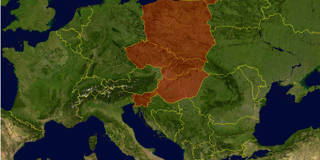A decade after the EU admitted ten new member states, including eight from the former Soviet bloc, enlargement has turned out differently than expected. The internal challenges have proved manageable, but now the EU needs to confront an external challenge for which it is ill prepared.
BRUSSELS – Ten years ago, eight countries from the former Soviet bloc, together with the island states of Malta and Cyprus, joined the European Union, bringing its membership from 15 to 25. At the time, it was feared that this eastern enlargement would create tensions within the EU because new members from Central and Eastern Europe were poor and some had large agricultural sectors. Because the EU spends mainly on poor regions and on farmers, many worried that enlargement would overburden its budget.

BRUSSELS – Ten years ago, eight countries from the former Soviet bloc, together with the island states of Malta and Cyprus, joined the European Union, bringing its membership from 15 to 25. At the time, it was feared that this eastern enlargement would create tensions within the EU because new members from Central and Eastern Europe were poor and some had large agricultural sectors. Because the EU spends mainly on poor regions and on farmers, many worried that enlargement would overburden its budget.